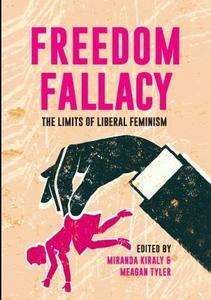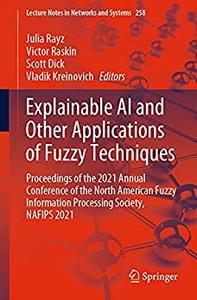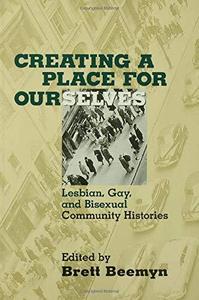
 |
 Graphic Design in Urban Environments By Robert Harland 2016 | 185 Pages | ISBN: 1472597753 | PDF | 6 MB [center]  Genki Workbook Volume 2, 3rd edition English, 日本語 | 2020 | ISBN: 4789017338 | 137 pages | PDF | 17 MB [center]  GENKI: An Integrated Course in Elementary Japanese Vol.2 English, 日本語 | 2020 | ISBN: 478901732X | 390 pages | PDF | 75 MB Third edition of the most highly regarded teaching text book on the Japanese language, covering speaking, listening, reading, and writing to cultivate overall language ability. Each lesson in the revised edition features a new section dubbed  Freedom Fallacy: The Limits of Liberal Feminism By Miranda Kiraly; Meagan Tyler 2015 | 260 Pages | ISBN: 1925138542 | PDF | 1 MB Feminism is back in fashion. From female celebrities to male politicians, it seems almost everyone is keen to use the f-word. But are there limits to this 'pop feminist' approach to liberation? Taking on topics from pornography and prostitution to female genital mutilation, from women's magazines and marriage to sexual violence, contributors in this collection argue that the kind of liberal feminism currently rising to prominence does little to challenge the status quo. Aiming to revive a more radical analysis, the chapters in this book confront the dangers of reducing feminism to a debate about personal choice and offer the possibility of change through collective action. Contributors include: Meghan Donevan. Teresa Edwards. Kate Farhall. Shakira Hussein. Natalie Jovanovski. Miranda Kiraly. Julia Long. Finn Mackay. Laura McNally. Meghan Murphy. Caroline Norma. Camille Nurka. Helen Pringle. Kaye Quek. Naela Rose. Laura Tarzia. Margaret Thornton. Meagan Tyler. Rebecca Whisnant.  Extravagant Inventions: The Princely Furniture of the Roentgens By Wolfram Koeppe 2012 | 308 Pages | ISBN: 1588394743 | PDF | 16 MB [center]  Explainable AI and Other Applications of Fuzzy Techniques English | 2022 | ISBN: 303082098X | 519 Pages | PDF | 41 MB This book focuses on an overview of the AI techniques, their foundations, their applications, and remaining challenges and open problems. Many artificial intelligence (AI) techniques do not explain their recommendations. Providing natural-language explanations for numerical AI recommendations is one of the main challenges of modern AI. To provide such explanations, a natural idea is to use techniques specifically designed to relate numerical recommendations and natural-language descriptions, namely fuzzy techniques.  Examination Techniques in Orthopaedics By Nick Harris, Fazal Ali 2014 | 379 Pages | ISBN: 1107564522 | PDF | 12 MB Examination Techniques in Orthopaedics comprehensively covers the basic examination skills and important special tests needed to evaluate the adult and paediatric musculoskeletal system. Chapters are presented in an easy-to-read, memorable format, helping readers develop their own detailed framework for patient examination as well as promoting exam success. For this new edition, all of the chapters have been rewritten in a uniform style and a chapter on general principles has been added. Each chapter is illustrated by clinical photographs and photographs demonstrating the techniques on models, and includes a summary of techniques, which readers will find useful in exam preparation. The contributing authors are experienced in teaching clinical examination both in the hospital setting and on national courses, and furthermore, many are examiners with firsthand awareness of what candidates need to know. Invaluable reading for those taking undergraduate and postgraduate examinations, practising orthopaedic surgeons, physiotherapists, general practitioners, medical students and rheumatologists.  Does Peacekeeping Work?: Shaping Belligerents' Choices After Civil War By Virginia Page Fortna 2008 | 230 Pages | ISBN: 0691136718 | PDF | 2 MB In the last fifteen years, the number, size, and scope of peacekeeping missions deployed in the aftermath of civil wars have increased exponentially. From Croatia and Cambodia, to Nicaragua and Namibia, international personnel have been sent to maintain peace around the world. But does peacekeeping work? And if so, how? InDoes Peacekeeping Work?Virginia Page Fortna answers these questions through the systematic analysis of civil wars that have taken place since the end of the Cold War. She compares peacekeeping and nonpeacekeeping cases, and she investigates where peacekeepers go, showing that their missions are crucial to the most severe internal conflicts in countries and regions where peace is otherwise likely to falter.Fortna demonstrates that peacekeeping is an extremely effective policy tool, dramatically reducing the risk that war will resume. Moreover, she explains that relatively small and militarily weak consent-based peacekeeping operations are often just as effective as larger, more robust enforcement missions. Fortna examines the causal mechanisms of peacekeeping, paying particular attention to the perspective of the peacekept--the belligerents themselves--on whose decisions the stability of peace depends. Based on interviews with government and rebel leaders in Sierra Leone, Mozambique, and the Chittagong Hill Tracts in Bangladesh,Does Peacekeeping Work?demonstrates specific ways in which peacekeepers alter incentives, alleviate fear and mistrust, prevent accidental escalation to war, and shape political procedures to stabilize peace.  Creating a Place for Ourselves: Lesbian, Gay, and Bisexual Community Histories By Brett Beemyn (Editor) 1997 | 3000 Pages | ISBN: 0415913896 | PDF | 13 MB Creating a Place For Ourselves is a groundbreaking collection of essays that examines gay life in the United States before Stonewall and the gay liberation movement. Along with examining areas with large gay communities such as New York, San Francisco and Fire Island, the contributors also consider the thriving gay populations in cities like Detroit, Buffalo, Washington, D.C., Birmingham and Flint, demonstrating that gay communities are truly everywhere.  Confidentiality and Its Discontents: Dilemmas of Privacy in Psychotherapy By Paul W. Mosher and Jeffrey Berman 2015 | 360 Pages | ISBN: 0823265102 | PDF | 8 MB Freud promised his patients absolute confidentiality, regardless of what they revealed, but privacy in psychotherapy began to erode a half-century ago. Psychotherapists now seem to serve as "double agents" with a dual and often conflicting allegiance to patient and society. Some therapists even go so far as to issue Miranda-type warnings, advising patients that what they say in therapy may be used against them. Confidentiality and Its Discontents explores the human stories arising from this loss of confidentiality in psychotherapy. Addressing different types of psychotherapy breaches, Mosher and Berman begin with the the story of novelist Philip Roth, who was horrified when he learned that his psychoanalyst had written a thinly veiled case study about him. Other breaches of privacy occur when the so-called duty to protect compels a therapist to break confidentiality by contacting the police. Every psychotherapist has heard about "Tarasoff," but few know the details of this story of fatal attraction. Nor are most readers familiar with the Jaffee case, which established psychotherapist-patient privilege in the federal courts. Similiarly, the story of Robert Bierenbaum, a New York surgeon who was brought to justice fifteen years after he brutally murdered his wife, reveals how privileged communication became established in a state court. Meanwhile, the story of New York Chief Judge Sol Wachtler, convicted of harassing a former lover and her daughter, shows how the fear of the loss of confidentiality may prevent a person from seeking treatment, with potentially disastrous results. While affirming the importance of the psychotherapist-patient privilege, Confidentiality and Its Discontents focuses on both the inner and outer stories of the characters involved in noteworthy psychotherapy breaches and the ways in which psychiatry and the law can complement but sometimes clash with each other. Jeffrey Berman is Distinguished Teaching Professor of English at the University at Albany. He is the author of several books, including, most recently, Death Education in the Writing Classroom and Dying in Character: Memoirs on the End of Life. He is an honorary member of the American Psychoanalytic Association. Confidentiality and Its Discontents is an enormously engaging book on a very important topic. Who among us is not aware of the incursions into our privacy (invited and uninvited) that characterize modern life? Do any of us experience the privilege of confidentiality, and if so, where? - The Psychoanalytic Review Written by two of the leading individuals in the field, Confidentiality and Its Discontents is a clearly readable and well-argued account of the debates about confidentiality in psychiatry and psychoanalysis. The book is extremely well presented and adds immeasurably to the literature on the topic. - Sander Gilman, Emory University Confidentiality and Its Discontents is an excellent account of confidentiality. It is a must-read for all clinicians, especially those who struggle with this issue as the actors in these stories did. - Journal of the American Psychoanalytic Association Paul Mosher is a psychoanalyst in private practice in Albany, New York, and is a Clinical Professor of Psychiatry at Albany Medical School. He has served as the Chair of the Committee on Confidentiality of the American Psychoanalytic Association. |